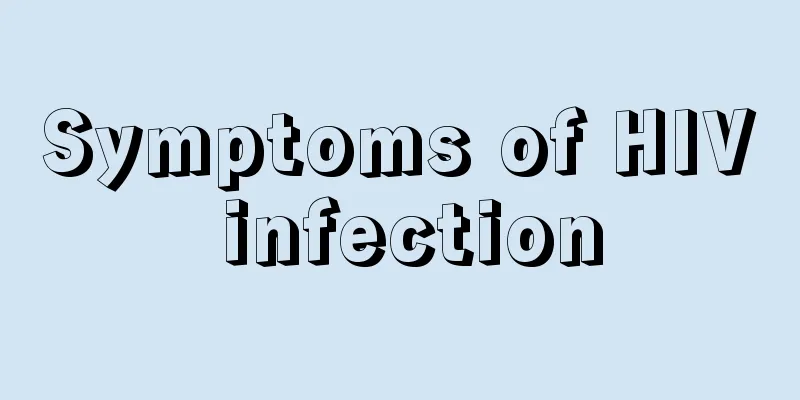Symptoms of HIV infection

|
Among human diseases, AIDS is very harmful to human health. After such a disease occurs, it is almost impossible to cure it. Moreover, after contracting AIDS, timely treatment is also needed, which will be very helpful to stabilize the disease. At the same time, AIDS is also contagious, so for such people, you should pay attention to the amount of contact when you contact them, and it is not advisable to contact them frequently. What are the symptoms of AIDS infection? Many people are not very clear about the symptoms of AIDS infection. After suffering from this disease, the body will also have obvious manifestations. The following is a detailed introduction so that people can have some understanding of this type of problem. Symptoms of HIV infection: Acute infection 15-20% of infected people may experience fever, sweating, fatigue, myalgia, arthralgia, anorexia, rash, swollen lymph nodes, etc. within 2-6 weeks. The symptoms generally last for 3-14 days before entering an asymptomatic period. Some people do not experience any acute symptoms after being infected with HIV. Asymptomatic period The vast majority of people infected with HIV do not have any symptoms at the beginning, just like healthy people, so they do not know when they were infected. What is important is that these asymptomatic HIV carriers are the main source of infection. It usually lasts from a few months to more than 10 years. As the immune function gradually declines, symptoms begin to appear. Early stage In the early stages of AIDS, patients experience swollen lymph nodes throughout the body, most commonly in the neck, armpits, and groin. The enlarged lymph nodes are mostly symmetrical, hard, non-adhesive, and non-tender and non-fluctuating. A small number of patients may experience mild anemia. But there were no other obvious symptoms. Related syndromes occur. Various symptoms occur gradually and become more severe. Onset Such as long-term fever (more than one month), progressive weight loss (weight loss of more than 10% within 2 months), persistent diarrhea, fatigue, anorexia, intellectual impairment, slow reaction, etc. Due to the complete loss of immune function in AIDS patients, common opportunistic infections occur, such as tuberculosis, hepatitis B, oral and pharyngeal fungal infections, etc. AIDS is also often complicated by malignant tumors such as Kaposi's sarcoma, lymphoma, liver cancer, kidney cancer, etc. The above is a detailed introduction to the symptoms of AIDS infection. After contracting AIDS, the symptoms of the disease vary according to the different stages of the patient's life. Based on the above description, we have some understanding of the symptoms of this type of disease. Therefore, when these problems occur in the body, timely treatment is needed. |
>>: Diet therapy to protect the eyesight of computer users
Recommend
The hazards of air humidifiers
Air humidifiers are popular instruments in recent...
Dietary therapy for patients with colorectal cancer and blood in stool
Blood in the stool is the main symptom of colorec...
Where can I get moxibustion to regulate my spleen and stomach
The spleen and stomach are very important organs ...
How to apply magnesium sulfate externally
Magnesium sulfate is a drug that is widely used i...
A guide to common medicines you need in a hot summer
1. Heatstroke miraculous medicine: Huoxiang Zheng...
Resin lens scratch repair tutorial
Resin lenses are lenses made of resin as the main...
The most important measure to prevent bladder cancer
The high incidence of tumor diseases is very comm...
What should I use if I get stung by a thorny hair?
Every time when it gets hot in the summer, a kind...
Knowing the cause of colon cancer can help you better prevent this disease
The occurrence of colon cancer will seriously aff...
Wash your hair with coconut juice
Coconut juice is an oily drink with high nutritio...
How to reduce swelling after being bitten by a snake
In summer, snakes are most common, especially in ...
What to do if acne appears in the t-zone
The T-zone is a very important area on the human ...
What is the cause of colon cancer
Oncologists say that the incidence of colon cance...
I feel hot and sweaty at night and can't sleep
When people are under a lot of mental stress, the...
Can I eat peaches if I have brain cancer?
Can people with brain cancer eat peaches? Cancer ...









